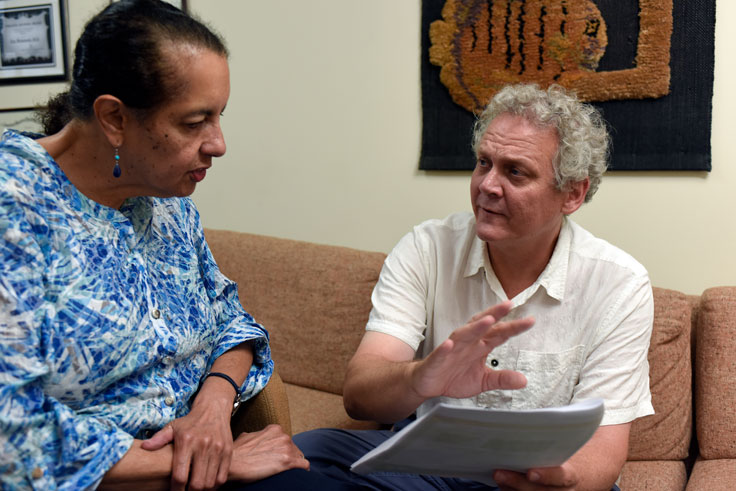Collaborations
As a national leader in the treatment of opioid use disorder (OUD), The Division of Addiction Research and Treatment works collaboratively and in support of: other divisions and centers at the University of Maryland School of Medicine; hospitals in the University of Maryland Medical System (UMMS) and from around the state; Baltimore City; counties throughout the state; the State of Maryland; and multiple other organizations.

Collaboration with VA Addiction Services
This collaboration with the VA enables The Division of Addiction Research and Treatment to accept referrals of veterans in need of MAT. 50+ veterans have been treated in University of Maryland programs.
Eastern Shore Mobile Care Collaborative at the Caroline County Health Department (ESMCC)
ESMCC is a Mobile Treatment Unit that aims to increase access to care by providing treatment for individuals with opioid use disorders in underserved rural communities in order to maximize access to life-saving treatment and develop a model of care that can be adopted by other under-served rural areas with similar needs.
Emergency Department (ED) Buprenorphine Initiative
This outreach initiative in collaboration with the Mosaic Group and funded by Open Society Institute developed protocols for engaging patients with Opioid Use Disorders (OUDs) in MAT in Baltimore Emergency Departments (EDs). Currently, protocols have been implemented in six EDs (including UMMC), with plans to initiate protocols in all city Emergency Departments.
Expanding Access to Medication Assisted Treatment (MAT) in Rural Maryland
The Division of Alcohol Research and Treatment, with the support of the state of Maryland, launched an initiative to increase access to medication assisted treatment (MAT) to under-served areas in rural Maryland. Using telemedicine, addiction-trained physicians work with individuals in Washington, Caroline, and Garrett Counties to provide buprenorphine treatments. Plan are underway to expand the program to Dorchester and Talbott Counties.
DOTS Project
This collaboration with the University of Maryland College Park (UMCP) works to identify novel synthetic cannabinoids in patients presenting at PES with atypical psychosis.
Geospatial Analysis of Access to Medication-Assisted Treatment Project
This collaboration with the Center for Geospatial Information Science (UMCP) and CESAR (UMCP) conducts geographic analyses of methadone patients’ residence information. It examines the geospatial determinants for numerous factors including: where patients seek treatment: patient retention: treatment outcomes: and, the geospatial context for treatment planning.
International OUD Treatment
In a collaborative program, the Division of Addiction Research and Treatment and the UMSOM Institute of Virology developed the first MAT with methadone treatment centers for individuals with opioid addiction in Kenya. Efforts included: training and educating staff; maintaining in-house case discussions and continuing medical education sessions; engaging with the police department to help lower the stigma of substance and opioid use disorders; encouraging referrals to treatment and providing MAT; developing evidence based counseling and psychosocial support systems; Hepatitis and HIV screenings for all patients entering MAT and, referrals from needle exchange services.
Rehabilitation Center Access to Addiction Specialists
This innovative pilot project establishes on site addiction consultation services for individuals with substance use disorders in skilled nursing facilities. It was initiated at the Caton Manor facility. Developed in response to rapidly number of patients in skilled nursing facilities with substance use disorders, it provides needed addiction treatment for this under-served population.
